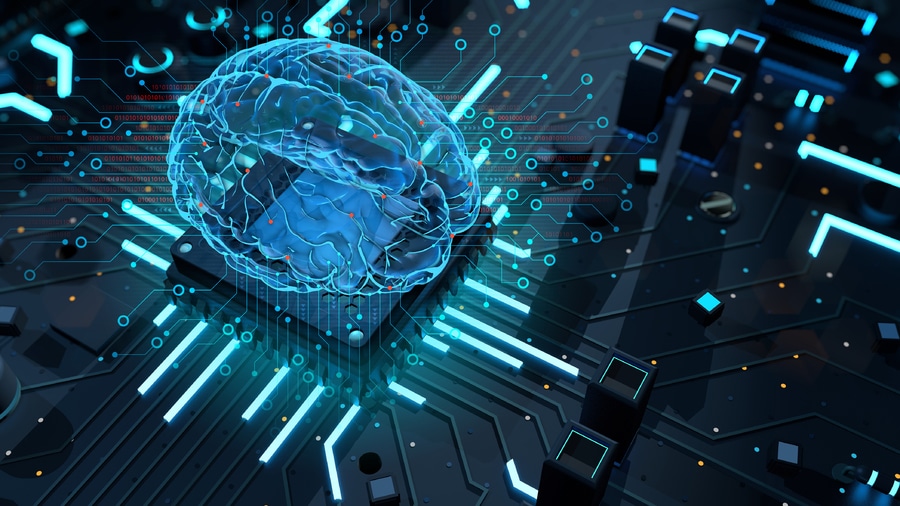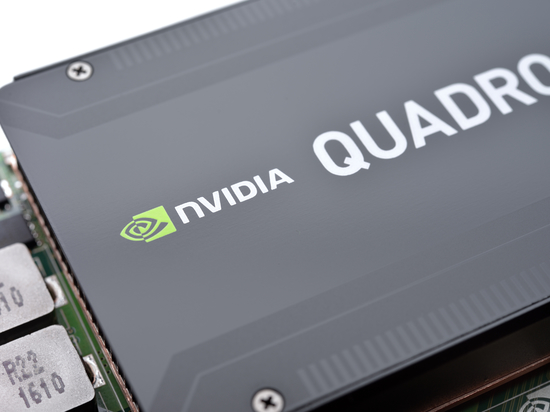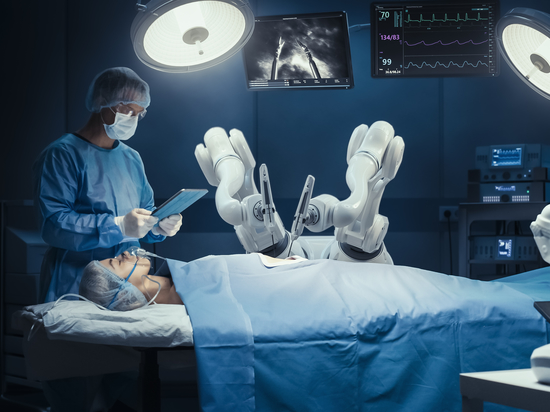
#Industry News
Innovative Solutions: AI Implementation in Healthcare Makes a Difference
The implementation of AI in healthcare is poised to radically change documentation, diagnosis, drug discovery, and more.
You can't miss the discussion surrounding generative artificial intelligence (AI), which can process, analyze, and implement information at rates far faster than any human mind can work.
AI's role in healthcare is poised to disrupt the entire sector, from how we diagnose patients to how we document their treatment. What follows are just some of the most important areas where AI is making an impact.
Documentation
The average healthcare provider spends 15 hours a week after work just filling out electronic health records. Many hope that generative AI can take over most note-taking and form-filling responsibilities, allowing providers to focus more on the patient and their treatment. A generative AI capable of voice recognition can follow a provider and patient’s conversation in real-time, taking notes in the standard SOAP (Subjective, Objective, Assessment, and Plan) format. Providers can then review these notes, making any necessary edits as they go on their medical tablets.
Generative AI can also transfer these notes into standardized formats, such as SNOMED CT (Systematized Nomenclature of Medicine - Clinical Terms), which is used for the electronic exchange of health information. This further reduces providers' bureaucratic workload, letting them focus purely on diagnosis and treatment.
Drug Development and Discovery
Pharmaceutical drug discovery and development is a process that can take years and billions of dollars to accomplish. Generative AI's ability to process massive data sets and develop new insights is being considered as a way to speed this process up and reduce its cost.
One area where generative AI is being applied is molecule generation, where the AI simulates molecular structures and how they interact with the human body. This allows researchers to explore new pharmaceutical molecules and find new drugs in a fraction of the time it once took.
AI’s ability to gather data from multiple datasets, such as patient data, genetic information, and biobank studies, also helps create precision drugs, which are designed for a specific individual’s condition. While impractical under the current standard, generative AI can dramatically accelerate the process and make precision drugs a viable treatment method.
Diagnostic Imaging
Before providers can start treating a patient, they need to diagnose what's wrong with them in the first place. Training AI models to identify the visual symptoms of disease lets them help identify these symptoms in real life.
One great example of this is in endoscopies and identifying potentially cancerous lesions. Colorectal cancer is one of the most common types of cancer and is the cause of over 50,000 deaths per year. A key step to preventing colorectal cancer is identifying lesions in the patient’s colon and determining if they are benign or premalignant, but this can be challenging even for experienced endoscopists.
By training an AI on thousands upon thousands of endoscopic images of lesions, that AI can identify and highlight lesions on a medical computer's screen during a colonoscopy, ensuring that the endoscopist doesn't miss a potentially life-threatening tumor. Similar methods are being developed for X-rays, MRIs, and CT scans.
AI-Assisted Surgery
Another angle for AI implementation in healthcare is as an aid for surgeons. By analyzing thousands, even millions of videos of surgery, an AI can predict the next 15 to 30 seconds of an operation, guiding surgeons step by step through a procedure and preventing them from missing steps throughout.
AI can also take over robotic surgery duties and perform basic tasks such as closing port sites or tying sutures off. This, in turn, lets surgeons focus on more demanding surgical steps. Real-time AI image enhancement also makes it easier to visually identify anatomical elements, such as tumors and lesions mentioned previously.
Final Thoughts
While the technology is still in its infancy and will doubtless undergo many trials and revisions, implementing AI in healthcare promises to deliver better results for patients and ease the burden on providers. However, taking advantage of AI-powered programs will require the right hardware to support them.
If your healthcare group is looking for new computer hardware to prepare for the AI surge, contact the team at Cybernet Manufacturing. Our medical-grade computers and tablets balance processing power with design features and certifications necessary for healthcare environments, such as IP 65-rated front bezels and IEC 60601-1 certification.





